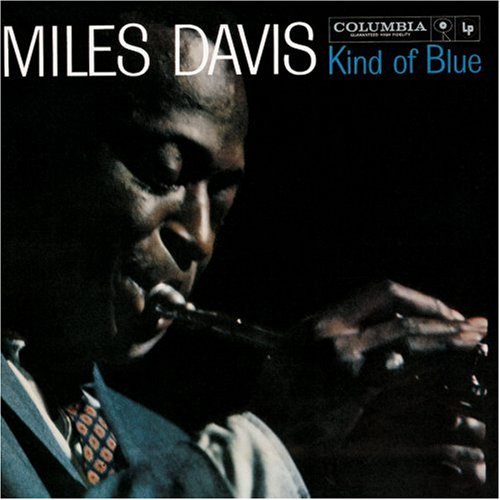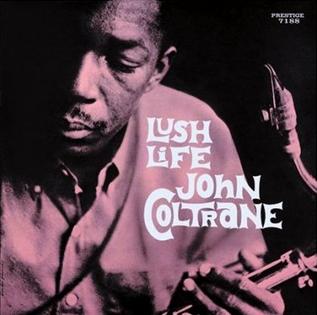Recent listening, current
Archived listening, 2013-2016
Friday, January 31, 2014
176. Etienne Charles - Creole Soul (2013)
After the uplifting vocal intro by Haitian singer Erol Josué, Charles immediately shows off his chops with "Creole," incorporating some brassy flourishes and familiar licks that recall the brilliance of Lee Morgan or Dizzy Gillespie. And Diz is probably a good touchstone for listeners to whom Charles is new. The music on Creole Soul is just as it sounds, and keeps with the trumpeter's eclectic style that freshly approaches the jazz idiom while remaining warmly reverent of his Trinidadian roots. A greater variety of musics and rhythmical structures -- everything from funk, calypso, bomba, and other musics produced by the Black diaspora -- make Creole Soul something of a departure from his previous albums that were more focused. So the album is like a self portrait. These styles are married with deep sentimentality, sleek musicianship, and mature songcraft in compositions like "The Folks," a Charles original, or spicy, fitting covers like Horace Silver's "Doin' the Thing." With its beguiling spirit and inventive performance, Charles and company negate boxy commercial descriptors like "Worldbeat," or "Latin" at every turn. Tenor sax by Jacques Schwarz-Bart and piano by Kris Bowers add exciting texture and kinetic energy to the already exciting proceedings. Highly recommended!
Labels:
2013,
Alex Wintz,
Ben Williams,
Brian Hogans,
creole soul,
culture shock music,
D'Achee,
Daniel Sadownick,
Erol Josué,
Etienne Charles,
flugelhorn,
fusion,
Jacques Schwarz-Bart,
Kris Bowers,
Obed Calvaire,
trumpet
Monday, January 27, 2014
175. John Blake / A New Beginning (1988)
A New Beginning combines Blake's typically sonorous violin lines with elements of funk, soul jazz, and Brazilian and African rhythmical structures. The exciting music is buoyed by an interesting lineup featuring two keyboards, a drummer, and a percussionist. Gerald Veasley kicks out solid rhythms on the bass with a soulful and percussive technique that employs juicy slides and the occasional slap to emphasize his point. Between the deceptively catchy but challenging opener "Dream Lady" and the following "Samba Di Bahia" listeners get the idea that the group is capable of excelling in a variety of musics while maintaining a consistent level of performance and improvisation quality that is the album's hallmark. Dual keyboards (James Simmons, electric; Sumi Tonooka, acoustic) add to the bubbling rhythm section, Simmons for texture and Tonooka as the melodic foil for Blake. Not being familiar with Blake beyond his work with Grover Washington, I had lukewarm expectations when I picked this up, and was pleasantly surprised. It ends on a great tune, "Serengetti Dance."
Labels:
1988,
a new beginning,
funk,
gerald veasley,
gramavision,
james simmons,
john blake,
leon jordan,
leonard gibbs,
review,
sextet,
smooth jazz,
straight ahead,
sumi tonooka,
violin
Thursday, January 23, 2014
170-173. Four albums by Gigi Gryce Quintet and Gigi Gryce Orch-Tette, 1960-1961
This CD release by Fresh Sound collects the last four LPs by Gigi Gryce: Saying Somethin'; The Hap'nin's; The Rat Race Blues; and Reminiscin'. I think they were originally released on Jazzland, but I have to double-check. Gryce was respected and admired as an altoist and composer, and he is heard on a good many dates by other leaders. But he left performing and recording for the field of education... PS 53 in the Bronx, to be precise. In that regard, he reminds me of people like Nathan Davis, Donald Byrd, or Dave Van Kriedt who quit the scene to become educators. Sadly, Gryce's memory gets lost, because in an age of new ideas, he just kept on playing hard bop and never really made a big splash. What he didn't accomplish by comparison to his peers is irrelevant. As this set shows, Gryce made some excellent music. His effortless, sometimes abrasive lines and unique approach to the blues are rock solid. I know everyone's blues is unique but it's nice to hear a person say it his way. Likewise, Gryce's arrangements of "Summertime," "A Train," "Lover Man," and "Caravan" put a vivid new spark into the old warhorses. I'm thankful we have the recordings he left and if you haven't heard of him, then you now have a new musician to look into.
Tuesday, January 21, 2014
169. Ronnie Cuber / Live at the Blue Note (1986)
Live at the Blue Note is fine hard bop by a very strong quartet featuring Cuber on barisax, with Dr. Lonnie Smith on organ and the outspoken Randy Brecker on trumpet. Drums are by Ronnie Burrage. The lineup says it all. Brecker is outstanding, assertive and brassy but so is everyone else. Listeners will recognize Cuber and Smith as an old team. From behind the organ Dr. Smith gives the music a robust buoyancy, working the draw bars like floodgates. Along with Burrage, he bounces between playing his own steely choruses and pointed interplay with Brecker and Cuber. The date is memorable and stands head and shoulders above Cuber's studio dates on Projazz, like Two Brothers. The set is a mix of bop, rhythm, and blues. It gets pretty hot, as with "Philly Blues," or "Blue 'n' Boogie," but practically the whole disc has the same feel. If you can find a copy and the price is reasonable, buy it. The audio is great, too.
Labels:
1986,
baritone sax,
dr lonnie smith,
hard bop,
intersound,
king,
live,
live at the blue note,
organ,
projazz,
quartet,
randy brecker,
rhythm and blues,
ronnie burrage,
ronnie cuber,
soul jazz
Monday, January 13, 2014
168. Miles Davis / Kind of Blue (1959)
A review of Kind of Blue seems pointless. I'll muse for a few hundred words, and then quit. I imagine a world without this record, and that is a difficult world. It's a world where Bill Evans didn't sub for Wynton Kelly, a world in which countless musicians were struck by inspiration elsewhere. A world that is one milestone short of properly demarcating the future. A world where your brain is not irresistibly and without permission drawn to referencing all subsequent Miles Davis dates to this one. It's a world without the myth of it all being done in one take, a world where you don't have to buy that other CD to find out that what you missed was not really anything special. In this world, 1959 is not terribly different than 1958 or 1960. The Columbia vault is one cart of tapes lighter. It's a party that went one album different. It's the late night DJ who selects something by Cliff Brown instead. It's a world where the porter didn't see the CD on my passenger seat. It's a world where as a teenager, I didn't once stop my bicycle in the middle of an intersection to change the batteries of my headset. It's a world where my daughter was lulled into dreamland by someone else's trumpet, and awakened by someone who was not John Coltrane. It's a lot the same, but it's not the same, and I'd rather have it with Kind of Blue.
Labels:
1959,
bill evans,
cannonball adderley,
columbia,
hard bop,
jimmy garrison,
john coltrane,
julian adderley,
kind of blue,
miles davis,
modal,
paul chambers,
post bop,
sextet,
trane,
trumpet,
wynton kelly
Monday, January 6, 2014
167. John Coltrane / Lush Life (1961)
While Prestige's Lush Life was not released until 1961, it was recorded by Van Gelder during three sessions in '57 and '58. As he was no longer recording for the label, Coltrane had no say in it but ironically, the record contains a few of his choicest recordings playing in the small group, hard bop setting. This was an incredibly fertile period for Coltrane. He had yet to compose the seminal works that later appeared on Blue Note and Atlantic but was already working on the technique and musical ideas that would define his legacy. The first three tracks present Coltrane as leader of a pianoless trio, fleshing out a lot of chords in lieu of the keyboard. The most memorable moment on Lush Life is probably the title track, a luscious ballad owned by the leader until around nine minutes in when Donald Byrd steps out of the woodwork for some equally inspiring lines on the trumpet. Two years ago I was at a stoplight listening to this on the radio and was so transfixed by Byrd's meandering melancholy that it took a horn blast from the car behind me to break the reverie. While I'll never recreate that moment, I can still listen again and again. "Trane's Slo Blues" is also notable for Coltrane's moves inside the changes. These tracks appear on the boxset Fearless Leader although they are not presented in the same sequence as they are here, which is actually quite good.
Labels:
1957,
1958,
1961,
albert heath,
art garland,
art taylor,
donald byrd,
earl may,
hard bop,
john coltrane,
louis hayes,
lush life,
paul chambers,
prestige,
quintet,
tenor,
tenor sax,
tenor saxophone,
trio,
trumpet
Friday, January 3, 2014
166. Sonny Rollins / Rollins Plays for Bird (1956)
The medley of post-1950 Charlie Parker tunes that begins this tribute to the late Mr. Parker flows as effortlessly as a river thanks to Wade Legge's piano continuo and Max Roach's drum kit. Rollins and Kenny Dorham do most of the melody and choruses, although Roach gets a fair shake, too. He characteristically mixes it up during the front line's choruses, laying on the cymbals and hard rolls while changing from straight time to double-time and back again, adding a loping feel, building urgency, or cooling it back down as needed. Legge and bassist George Morrow are the only musicians in the quintet to never work with Parker, so there is a familiar intimacy about the music that comes from the friends honoring a friend. Dorham is relaxed and outstanding in the "Star Eyes" segment. He especially soars in "Kids Know," a Rollins original in 3/4 that the band stretches out generously. There are a lot of Charlie Parker tribute albums out there, hundreds since 1955, and some are real time wasters. This date is one of the best, the most genuine, and the most enjoyable.
Wednesday, January 1, 2014
164. Ernie Watts Quartet / Ernie Watts Quartet (1987)
This self-titled LP featuring Watts as the chief soloist is pretty hard to fault. Watts' craft and professionalism are what's on display here, and they are impressive to say the least. Watts is a diversely talented musician capable of playing with ease in a dizzying assortment of styles and settings, and this album does well to demonstrate his chops on tenor, alto, and soprano saxes while playing pop, hard bop, and the blues. By 1987, he had done extensive session work in Los Angeles that refined his technique from a streetwise hard bop sound to the razor edge of instinct and technical facility required for more specific demands as a hired horn. Side 1 opens with "Language of the Heart," a smooth pop tune that never strays far from the melody. But the next track is a mean slice of hard bop called "Continental Blues." The dramatic juxtaposition of these styles proclaims YES, this man will do both! Here and elsewhere, Watts switches from heavy lines in a tough tone to effervescent double-time eruptions of verbosity that probe the harmonic architecture of the changes. Even when he's on alto, Watts reminds me a lot of John Coltrane. I appreciate the group's thoughtful rendition of "Body and Soul," which is dedicated to Mr. Coltrane, and at 6:02 is also the longest track on the record. Pat Coil, whether driving the rhythm, comping, or interplaying intelligently with Watts, wins the prize for underrated sideman of the hour. Often, in the more predictable spots, his piano maintains my interest when the melody from Watts just isn't enough. Timekeeping Leatherbarrow and Dibartolo are also notable.
Subscribe to:
Posts (Atom)







